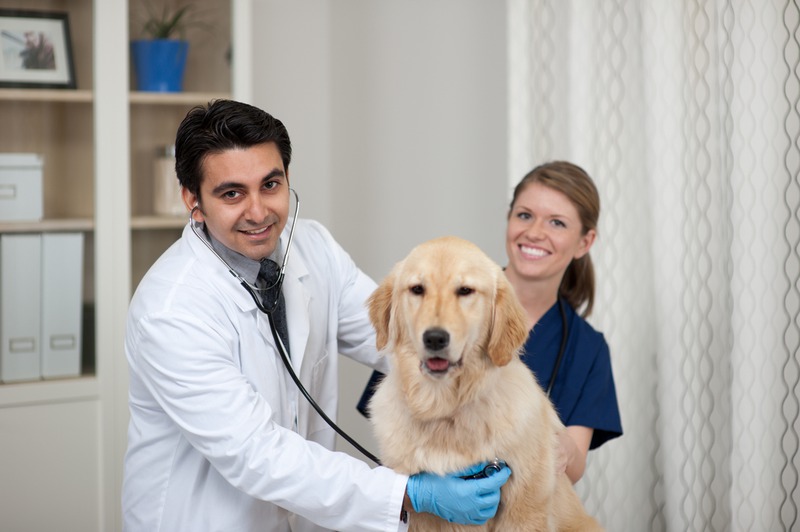Who Should Opt for Laser Therapy in Pet Dentistry?

As pet parents, we all want to ensure our furry friends have the best care possible, especially when it comes to their health. Just like humans, pets can suffer from dental problems that, if left untreated, can lead to serious health issues. In recent years, laser therapy has emerged as a cutting-edge technique in pet dentistry. It’s not just a high-tech buzzword; it offers real benefits for our animal companions. So, who should consider laser therapy for their pet’s dental needs? Let’s sink our teeth into this topic and find out.
Is Laser Therapy Right for Your Pet’s Dental Care?
Laser therapy may sound futuristic, but it’s already here to aid in pet dental care. It’s a great tool, but not all pets will need it—it’s kind of like that fancy electric toothbrush you might occasionally eye. Some pets will benefit greatly, while for others, it’s an unnecessary gadget. Here are some specific groups of pets that might need this high-tech treatment.
Pets with Severe Dental Disease
If your four-legged pal has severe dental issues like periodontal disease, which is an inflammation of the structures supporting the teeth, laser therapy can be a game-changer. It can remove diseased tissue with less bleeding and pain compared to traditional methods.
Older Pets or Those with Health Concerns
Older pets or those with health conditions that make anesthesia risky may benefit from laser therapy, which can often be done with minimal sedation. No long, stressful recoveries here.
Pets Prone to Anxiety or Stress
Any pet parent knows the fear in their animal’s eyes when the carrier comes out. If your pet gets jittery or downright panic-stricken with routine vet visits, imagine their reaction to a dental procedure. Laser therapy is less invasive and can usually get the job done quicker, meaning less stress for your pet (and you).
Benefits of Laser Therapy for Dental Care
Laser therapy’s appeal isn’t just its flashy name. It comes with a whole host of benefits that make it an attractive option for pet dental care. Here’s why you might want to consider it:
-
Less Pain: The procedure tends to be less painful for your pet, which is always a win.
-
Reduced Inflammation: It minimizes swelling in the gums and mouth.
-
Lower Risk of Infection: Lasers sterilize as they cut, reducing the risk of infections post-surgery.
-
Quick Recovery: Healing times are generally faster with laser therapy.
-
Better Precision: Lasers can target specific areas without damaging surrounding tissues.
Care and Considerations Post-Therapy
After your pet has laser therapy, it’s not just about waiting for them to bounce back. There are steps you need to take to ensure a smooth recovery.
-
Keep a close eye on their behavior and eating habits.
-
Avoid hard foods that could irritate the treated area.
-
Follow up with your vet for post-treatment checkups as needed.
Differences Between Traditional Dental Surgery and Laser Therapy
So, how does laser therapy stack up against good old-fashioned dental surgery? Let’s break it down:
-
Traditional Methods:
-
Involve more cutting and stitching.
-
It can lead to increased discomfort.
-
Often results in a longer healing process.
-
Laser Therapy:
-
Usually, it requires only a light sedative.
-
Minimizes discomfort and bleeding.
-
Speeds up the procedure and recovery time, getting your pet back on their paws faster.
Laser therapy offers a less invasive and quicker alternative to traditional dental surgery, enhancing comfort and reducing recovery time.
When Laser Therapy Might Not Be the Best Option
Despite its benefits, laser therapy is not a one-size-fits-all solution. In some cases, traditional dental treatments may be recommended. For example, if your pet needs extensive oral surgery or has certain types of tumors, a more conventional approach might be called for. Always consult with a trusted dog and cat dentist to determine the best care for your furry friend’s unique needs.
Other Considerations in Pet Dental Health
While deciding on laser therapy is important, don’t forget the basics of pet dental health. Regular check-ups, good dental hygiene at home, and taking preventative measures like puppy vaccinations that protect against disease are all key components of a comprehensive dental care plan for your pet.
Combining Laser Therapy with Other Dental Treatments
Laser therapy isn’t always a stand-alone treatment. Sometimes, it’s used in conjunction with other dental procedures to provide the best outcome. Your vet might recommend pairing it with traditional cleaning or using it as part of a larger dental surgery protocol.
Finding the Right Veterinary Expert for Laser Therapy
Not every vet clinic has jumped on the laser wagon just yet. It’s important to find a veterinarian with experience and expertise in laser therapy. Ask for references, read reviews, and don’t be shy about asking hard-hitting questions about their laser credentials.
Costs and Insurance
We all know how a trip to the dentist can hit our wallets, and the same goes for pet dentistry. Laser therapy can be more expensive than traditional treatments. However, pet insurance may cover some procedures, so it’s worth looking into your policy details.
Discovering Laser Therapy
Cats, with their smaller mouths and different dental issues, might also see benefits from laser therapy. If you’re looking to explore this option for your feline friend, consider doing some research on laser therapy for cats in Morton. This could be the solution your little lion has been pining for.
Final Thoughts
Laser therapy in pet dentistry isn’t suitable for every pet but can be incredibly beneficial for some. It’s a less invasive and less painful option, particularly for older pets or those with severe dental issues. Regular dental care and preventive measures are essential too. Consult your vet, consider the pros and cons, and if you choose laser therapy, ensure the professional is skilled. Your pet relies on you to make informed health decisions, so ask questions and aim for a healthier, happier smile for your pet.


